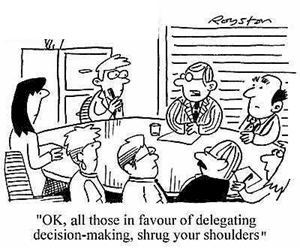But is this a ploy for police to gain access to resident’s backyards?
San Leandro Police Chief Sandra Spagnoli is attempting to turn the “urban farming” ordinance the City Council voted to pass in October 2011, into an “animal control” ordinance. After that meeting, City staff drafted an ordinance, modeled after those in surrounding cities and based on community input, that achieved a happy balance between promoting and regulating urban farming. The Police Chief, however, got a hold of it and is pushing to have it rewritten to provide strict controls on the keeping of bees and chickens.
According to the Chief, bees need to be strictly regulated because of concerns over “over pollination and health hazards”. At the Dec. 11th Rules Committee meeting, where these matters were discussed, these concerns were met with skepticism, to say the least.
Scott Terry, one of the main proponents of urban farming, is an expert beekeeper who gets called in when there is a swarm of bees in Alameda County. He was puzzled about the Chief’s concerns: “I have never ever before five minutes ago heard the phrase “over pollination,” he said at the meeting.
Mitch Huitema, a beekeeper who grew up on a farm concurred: “I have never in my life heard of, what was it, “over pollination,” she said
But San Leandro Councilmember Diana Souza, who has been against the urban farming ordinance from the beginning, was quick to reply “I really quick “google’d” over pollination in my phone and I got several responses so it is something that’s pretty common and just we might not hear about it in our day-to-day life but it was a quick Google and gave me plenty of responses.”
San Leandro Mayor Stephen Cassidy deadpanned: “We do have to be careful about the Internet. I think of the quote from Abraham Lincoln: ‘You can’t trust everything printed on the Internet.’”
Actually, if only Councilmember Souza and Mayor Cassidy had read those links Souza found while googling, they would have realized just how ridiculous are fears over pollination. The second link offered by google is a FAQ about pollination from Koppert Biological Systems, a company that provides pollination solutions to growers all over the world. It clearly explains
“Over-pollination happens when bumblebees are starving for food in strawberry greenhouses. They then shake the anthers of the flowers so vigorously that it ends up damaging the fruit, which can lead to malformed fruit, sometimes with dark marks on them. Because of the bumblebees explorative nature, this behaviour is never a problem in outdoor pollination. In indoor pollination, it has only been observed in strawberries, and only when the bumblebee densities were too high. ”
The Chief’s “concerns” about “health hazards” are almost as disingenuous. Honey bees are not aggressive and will not sting unless threatened. Most bee stings actually come from wasps (yellow jackets are often confused for bees) and other “wild” bees. Honey bees, moreover, will travel up to 5 miles in search of yummy nectar, so it makes no practical difference whether their hives are located in the property next door, or in a neighboring city. What does make a difference is the type of flowers you keep: honey bees can’t see the color red.
Spagnoli must have realized how silly her purported concerns sounded, so she tried to booster her arguments by providing a “summary” of animal control regulations in other “Bay Area” cities. None of the cities she listed were in Alameda County, not surprising as San Leandro is the only city in Alameda County which does not allow bee or chicken keeping. Instead she cited a Yolo County regulation that makes it illegal to have “exotic animals not used in circuses or carnivals” and those of selected Marin County cities, some of which required beekeeping permits.
Honestly, I couldn’t quite understand why the Chief of Police has shown so much personal interest on a matter that seems to have no law enforcement angle whatsoever. But San Leandro resident Cynthia Chandler came to the rescue with an explanation. Chandler, a Harvard and Cambridge trained lawyer and criminologist, is an adjunct professor of criminal law and has worked extensively on prison issues:
” Training provided to police and corrections officials generally emphasizes using punitive solutions for addressing social concerns, and building policy to increase police discretion. Bee and chicken ordinances will give the SLPD discretion to search many more households and yards at will.”
Wow, even I didn’t see that one coming. But given the other social control measures Chief Spagnoli has been espousing: from blanketing the city with surveillance cameras to banning specific businesses from town, I shouldn’t be surprised.
San Leandro residents don’t have to let this happen, however. While some City Council members will bend to the Chief’s will every time, others can be more responsive to the community’s input. You can write to all of them by clicking here.


 Committee Members ask few questions, make fewer comments, decide to pass the buck back to the City Council.
Committee Members ask few questions, make fewer comments, decide to pass the buck back to the City Council. It’s worse than I thought, but is it intentional or just careless?
It’s worse than I thought, but is it intentional or just careless?
